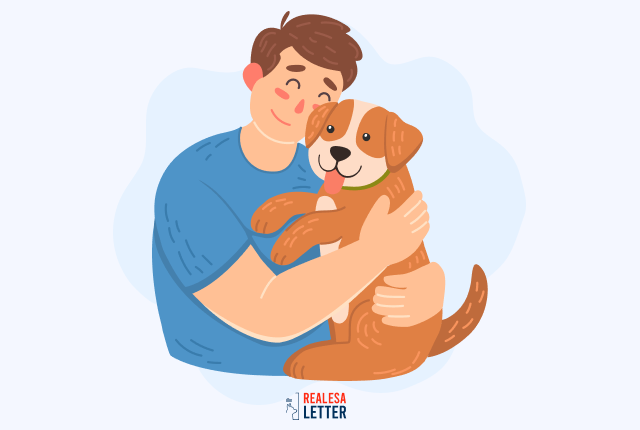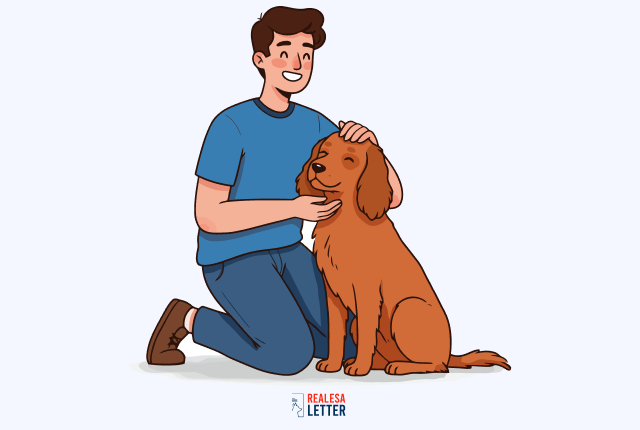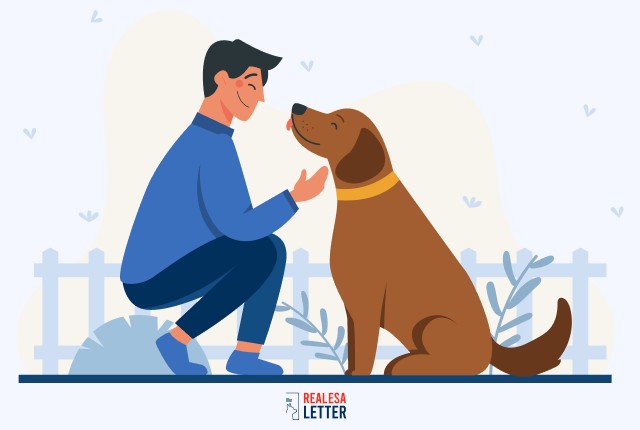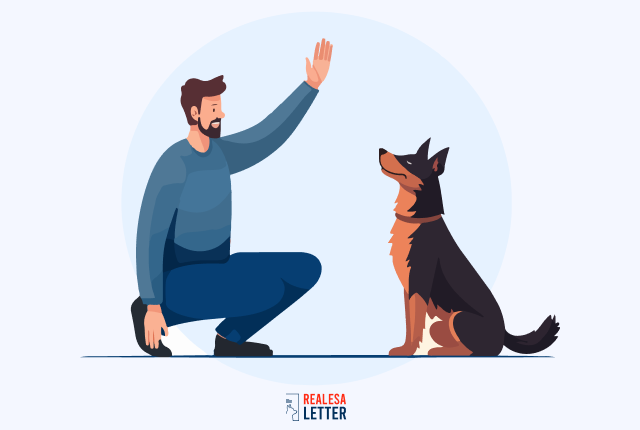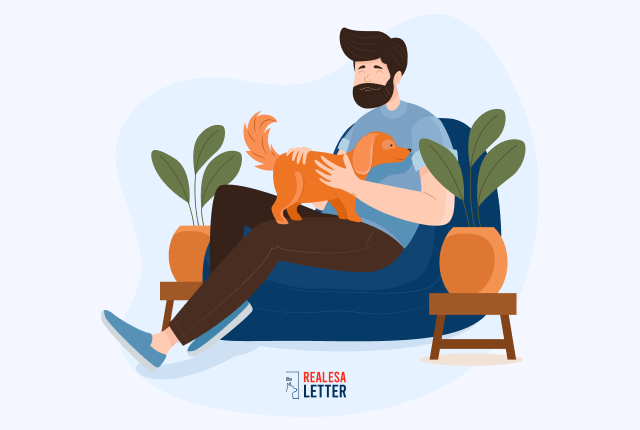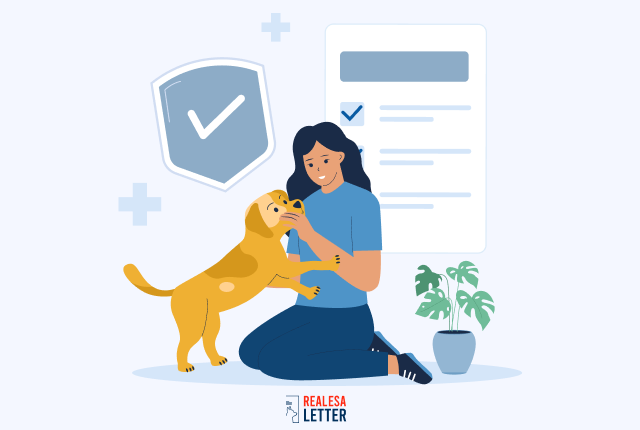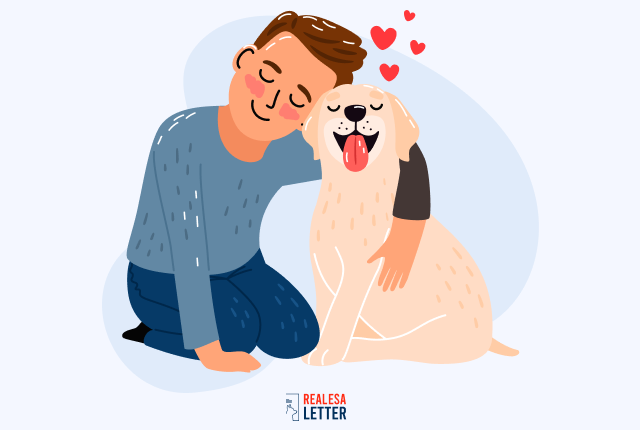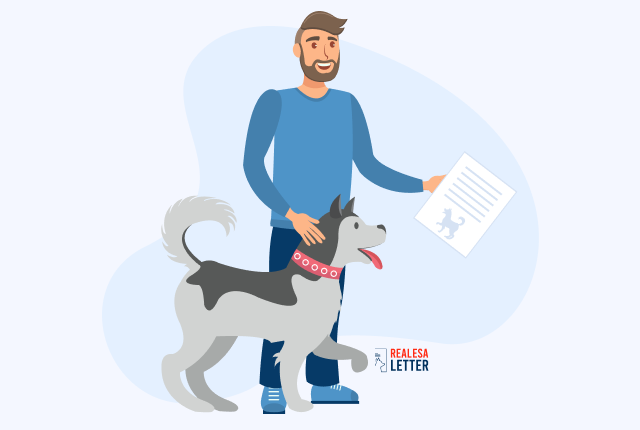Life can feel overwhelming, and sometimes all it takes is a wagging tail and a gentle nudge to feel better. Emotional support dogs just do that by bringing comfort, stability, and unconditional love.
While any dog can be a great friend, some breeds are especially good at the emotional support game. If you’re dealing with panic attacks, anxiety, depression, or just need a loyal buddy by your side, the right dog can make a world of difference.
Here, we’ll break down the best emotional support dog breeds, what makes them great companions, and tips for finding the perfect match for your needs.
What Exactly Is an Emotional Support Dog?
An emotional support dog is a companion animal that provides comfort, affection, and a calming presence to people with mental or emotional challenges. They help ease stress, anxiety, and other symptoms simply by being there, offering unconditional love and support.
Emotional support dogs can play an important role in helping people cope with:
Unlike service dogs, which are trained to perform specific tasks for people with disabilities, emotional support dogs don’t require special training. Their main role is to provide emotional comfort, not to carry out physical or specialized assistance tasks.
To make your dog an official emotional support animal, you need a letter from a mental health professional. This letter protects your right under the Fair Housing Act to keep your dog, even in “no-pet” housing
Why Breed Choice Matters for Emotional Support Dogs
While any dog can become an ESA with the right temperament, some popular dog breeds are naturally more trainable and emotionally attuned to their owners. Some breeds, like the Great Pyrenees, can serve dual roles as both service dogs and emotional support animals due to their calm, gentle nature.
Here are some key qualities to look for in an emotional support dog:
- Gentle temperament – Calm, non-aggressive, and affectionate.
- Trainability – The ability to learn routines and adapt to your lifestyle.
- Affection level – Dogs that enjoy close contact and thrive on companionship.
- Adaptability – Comfort in different living environments, including apartments.
- Low reactivity – Less prone to being startled or stressed in busy settings.
The 20 Best Emotional Support Dog Breeds
Here are the most recommended emotional support dog breeds, each with their own strengths and personalities.
1. Labrador Retriever
The Labrador Retriever consistently tops the list of support and service dogs for good reason. They’re friendly, highly trainable, and eager to please. Labs have a natural ability to sense their owner’s mood and respond with gentle reassurance.
Why do they make great ESAs:
- Patient and tolerant
- Easy to train for routines and commands
- Adaptable to active or laid-back lifestyles
- Excellent with children and other pets
Potential health issues: Hip dysplasia, obesity, and certain eye conditions.
2. Golden Retriever
The Golden Retriever shares many traits with the Labrador, making them another top pick for emotional support. Their warm, friendly nature and natural desire to connect make them experts at providing unconditional love.
Why do they make great ESAs:
- Gentle and affectionate
- Highly trainable and intelligent
- Great with strangers and children
- Adaptable to different environments
Potential health issues: Hip and elbow dysplasia, heart problems, and cancer risks.
3. Cavalier King Charles Spaniel
If you’re looking for a small lap dog with a big heart, the Cavalier King Charles Spaniel is a wonderful choice. Their sweet expression matches their loving personality, and they thrive on human companionship.
Why do they make great ESAs:
- Calm, gentle demeanor
- Small enough for apartments
- Naturally affectionate and sociable
- Adjusts well to a quiet lifestyle
Potential health issues: Heart disease, ear infections, and eye problems.
4. German Shepherd
Known for their intelligence and loyalty, German Shepherds are often used as service dogs, but they can also excel as ESAs. They form strong bonds with their owners and can offer both comfort and a sense of security.
Why do they make great ESAs:
- Highly trainable and disciplined
- Protective yet gentle with family
- Strong work ethic and loyalty
- Good for active lifestyles
Potential health issues: Hip dysplasia, degenerative myelopathy, digestive issues.
5. Yorkshire Terrier
The Yorkshire Terrier may be small, but they have a big personality. Yorkies are lively, affectionate, and make excellent lap dogs, perfect for people in smaller living spaces.
Why do they make great ESAs:
- Compact size for travel and apartment living
- Affectionate and loyal to their owners
- Low shedding coat (great for allergy sufferers)
- Protective of their people
Potential health issues: Dental problems, hypoglycemia, and tracheal collapse.
6. Poodle (Toy, Miniature, or Standard)
Poodles come in multiple sizes, making them a versatile choice for various living situations. They’re intelligent, elegant, and incredibly easy to train—traits that make them excellent support dogs.
Why do they make great ESAs:
- Hypoallergenic coat
- Exceptional intelligence
- Adaptable to active or calm lifestyles
- Loves human interaction
Potential health issues: Addison’s disease, hip dysplasia, and bloat.
7. Corgi (Pembroke Welsh or Cardigan)
Corgis may be small, but they have a cheerful and affectionate nature that can brighten anyone’s day. They’re playful, intelligent, and bond closely with their families.
Why do they make great ESAs:
- Friendly and outgoing personality
- Adaptable to various environments
- Strong desire to be near their owners
- Good with children
Potential health issues: Back problems, hip dysplasia, obesity.
8. Havanese
The Havanese is a small, charming breed that thrives on companionship. They’re gentle, social, and excellent at reading their owner’s emotions—making them perfect for those who need a calming presence.
Why do they make great ESAs:
- Small, adaptable size
- Naturally affectionate and attentive
- Low-shedding coat
- Excellent lap companions
Potential health issues: Eye disorders, heart issues, luxating patellas.
9. Border Collie
If you lead an active lifestyle and want an ESA who can keep up, the Border Collie is an excellent match. They’re one of the most highly trainable breeds, known for their intelligence and boundless energy.
Why do they make great ESAs:
- Exceptionally smart and responsive
- Forms deep bonds with owners
- Energetic and playful for active people
- Great for training and agility activities
Potential health issues: Epilepsy, hip dysplasia, eye disorders.
10. Great Dane
For those who prefer a gentle giant, the Great Dane offers comfort and companionship on a high level. Despite their size, they’re calm, patient, and affectionate.
Why do they make great ESAs:
- Gentle and loving personality
- Low activity needs despite size
- Deeply loyal and protective
- A reassuring presence
Potential health issues: Bloat, heart problems, hip dysplasia.
11. Shih Tzu
The Shih Tzu is a lovable lap dog that thrives on companionship and affection. They’re calm, friendly, and adapt well to apartment living.
Why do they make great ESAs:
- Gentle and loving nature
- Great for small spaces
- Low energy but playful
- Affectionate with all family members
Potential health issues: Breathing issues, eye problems, and back problems.
12. French Bulldog
The French Bulldog is a compact, affectionate breed that offers a calming presence. They love to snuggle and are excellent for less active lifestyles.
Why do they make great ESAs:
- Calm and affectionate
- Great for apartment living
- Low exercise needs
- Excellent with children
Potential health issues: Breathing issues, skin allergies, and spine problems.
13. Maltese
The Maltese is a cheerful and affectionate breed, perfect for anyone who wants a loving companion that can go anywhere.
Why do they make great ESAs:
- Small and portable
- Gentle and affectionate
- Low-shedding coat
- Excellent for older adults
Potential health issues: Dental problems, luxating patella, and eye conditions.
14. Boxer
Boxers are playful, loyal, and protective, making them a great choice for emotional support. They are energetic yet affectionate.
Why do they make great ESAs:
- Loyal and protective
- Great with children
- Energetic and fun-loving
- Affectionate and gentle
Potential health issues: Heart problems, cancer risks, hip dysplasia.
15. Bichon Frise
The Bichon Frise is a happy, playful breed with a hypoallergenic coat, making them ideal for allergy sufferers.
Why do they make great ESAs:
- Cheerful and affectionate
- Low-shedding coat
- Friendly with everyone
- Adaptable to various lifestyles
Potential health issues: Allergies, hip dysplasia, dental problems.
16. Pomeranian
Small but full of personality, Pomeranians are lively and affectionate, perfect for people wanting a portable companion.
Why do they make great ESAs:
- Small and easy to carry
- Affectionate and loyal
- Playful and alert
- Great for apartment living
Potential health issues: Dental issues, tracheal collapse, and patella luxation.
17. Bernese Mountain Dog
Gentle giants with a sweet temperament, Bernese Mountain Dogs are loyal and calm, perfect for emotional support.
Why do they make great ESAs:
- Gentle and affectionate
- Loyal to family
- Calm and patient nature
- Good with children
Potential health issues: Hip and elbow dysplasia, cancer risks, bloat.
18. English Bulldog
The English Bulldog is calm, laid-back, and deeply affectionate—ideal for anyone wanting a low-energy companion.
Why do they make great ESAs:
- Low activity needs
- Loving and loyal
- Gentle with children
- Adaptable to small spaces
Potential health issues: Breathing problems, joint issues, and skin conditions.
19. Shetland Sheepdog
The Shetland Sheepdog is intelligent, gentle, and responsive, making them excellent emotional support dogs.
Why do they make great ESAs:
- Highly trainable
- Affectionate and loyal
- Great with children
- Intelligent and adaptable
Potential health issues: Eye problems, hip dysplasia, and skin allergies.
20. Australian Shepherd
Australian Shepherds are intelligent, energetic, and deeply bonded with their owners, offering both support and fun.
Why do they make great ESAs:
- Highly trainable and intelligent
- Loyal and affectionate
- Great for active owners
- Energetic and playful
Potential health issues: Hip dysplasia, epilepsy, and eye problems.
Choosing the Right Emotional Support Dog Breed for You
Here’s a quick checklist to help you decide which ESA breed fits your life:
- Match your lifestyle – Pick a breed that suits your activity level, daily routine, and living space.
- Consider size – Smaller dogs are great for apartments, while larger breeds may need more space.
- Think about energy levels – Active people may prefer energetic breeds, while calm companions are better for quieter lifestyles.
- Check temperament – Look for gentle, affectionate, and adaptable personalities.
- Allergy concerns – Choose hypoallergenic breeds if you have allergies.
- Maintenance needs – Consider grooming, shedding, and overall care requirements.
- Health factors – Research common health issues for each breed.
- Bonding potential – Pick a dog that naturally enjoys close companionship and human interaction.
Legal Protections for Emotional Support Dogs
If you have an ESA, you’re entitled to certain protections under U.S. federal emotional support animal laws. The most important is the Fair Housing Act, which requires landlords and housing providers to make reasonable accommodations for your ESA, even in buildings with “no-pets” policies. This means they cannot deny you housing or charge extra pet fees because of your ESA, as long as you have a valid ESA letter from a licensed mental health professional.
To avoid issues, keeping your documentation up to date with an ESA letter renewal can make the housing process smoother, since many landlords prefer current paperwork.
It’s important to note that ESAs are not covered under the Americans with Disabilities Act in the same way service dogs are. This means emotional support dogs do not have full public access rights, so entry to restaurants, stores, or other non-pet-friendly public places is not guaranteed.
For travel, the Air Carrier Access Act no longer requires airlines to accept ESAs in the cabin, so airline policies vary, and you should always check ahead.
How to Get an ESA Letter at RealESALetter
Getting your ESA letter with RealESALetter is quick, simple, and stress-free. Here’s how it works:
- Take the free qualification quiz – Answer a few easy questions to see if you qualify for an emotional support animal letter or a psychiatric service dog (PSD) letter.
- Connect with a licensed mental health professional – If you qualify, you’ll be matched with a professional who can review your case.
- Confirm your order – Approve the details and finalize your request.
- Get your ESA letter fast – Receive your certified digital ESA letter within 24 hours, and your hard copy will arrive in just 3 days.
You can also view a sample ESA letter on our website to see exactly what your certification will look like before you order.
Get Your ESA Letter Today and Welcome Comfort Into Your Life!
An emotional support dog can be a true lifeline. They bring calm on stressful days, comfort during anxious moments, and unconditional love every single day. The right breed will fit your lifestyle, match your energy, and be there through life’s ups and downs.
Knowing your legal rights under the FHA ensures you and your ESA can stay together without worry. Certification also helps you avoid unnecessary housing issues and protects your companion’s place in your life.
With RealESALetter, getting an ESA letter is quick, legitimate, and stress-free. Complete a short quiz, connect with a licensed mental health professional, and receive your certified digital letter in 24 hours.
Secure your rights, skip the housing headaches, and keep your best friend by your side.
Pricing
PSD Letter
Reviews
ESA By States
ESA Laws
Resources
